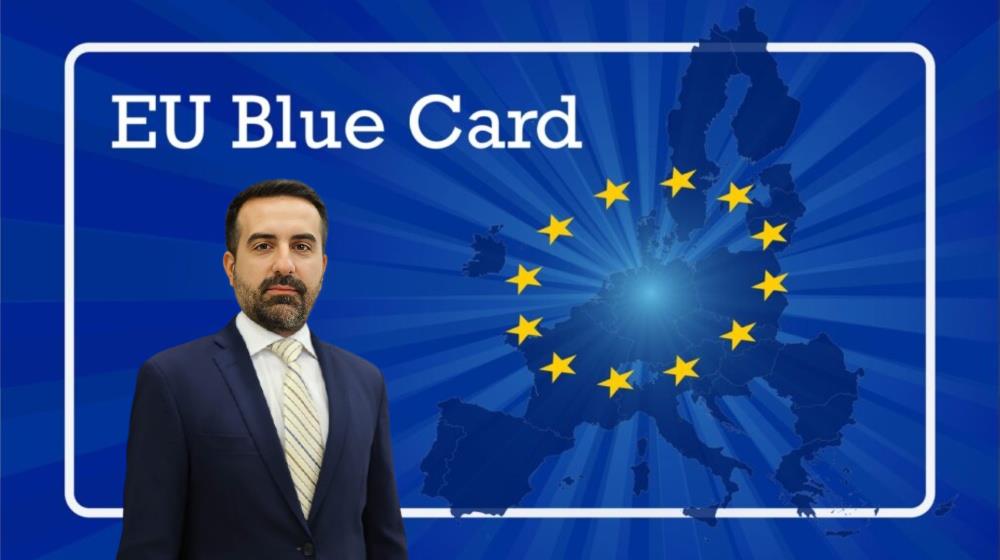In July 2025, Cyprus adopted the EU Blue Card, a programme designed to attract highly skilled workers from outside the bloc.
CBN spoke with Dr Nicholas A. Ioannides, Deputy Minister of Migration and International Protection, to clarify what companies and applicants can expect.
What makes the Blue Card different?
“The Blue Card is designed for highly skilled non-EU nationals with specific qualification requirements and a higher salary threshold,” says the Deputy Minister. Beyond the promise of EU mobility, it offers faster family reunification and quicker routes to long-term EU residency compared with many national permits.
By contrast, national schemes may be more flexible on sectors and salary – Cyprus sets the Blue Card’s minimum gross annual salary at €43,632 – but they lack the cross-border advantages of the programme, Ioannides notes.
Not just for tech workers
He is keen to stress that it is not confined to the tech sector. “The Blue Card is not only for tech workers. It is aimed at highly qualified third country nationals – university degree or equivalent professional experience – who have a binding job offer or contract for highly-skilled employment,” he explains. In Cyprus, that extends beyond ICT to include the pharmaceutical and maritime sectors.
A package of rights and stability
The attraction lies in the combination of rights and stability it offers. “The Blue Card offers equal rights, mobility and stability, making it a powerful instrument for both employers seeking to attract talent and professionals seeking long-term security in Cyprus and in Europe,” Ioannides says. Holders are entitled to live in Cyprus for the duration of their permit and to re-enter freely without additional administrative headaches.
At the same time, employment is tied to the job for which the card was issued. “This ensures that the programme remains focused on attracting and retaining talent in areas of strategic importance,” he adds.
Cardholders benefit from non-discrimination rules covering working conditions, access to education and vocational training, recognition of qualifications, social security and tax benefits.
Family matters
The prospect of bringing family is another advantage: spouses and dependent children may join under permits of equal duration, and Ioannides notes that the process has been made simplified. More importantly, spouses will have free access to the labour market.
What if you lose your job?
Losing a job does not automatically end residency rights. Holders are allowed a grace period – three months if they have held the card for less than two years, six months if longer – to secure a new role that meets the programme’s requirements. “It is very important to emphasise that holders need to notify the Migration Department immediately upon termination of employment, as the Blue Card is linked to a specific employer,” Ioannides says. Also, any change of employer requires a new application for renewal.
Moving around
Mobility across Europe is another selling point. Blue Card holders can stay in another EU country for up to 90 days within any 180 for activities tied to their work without additional paperwork. After a year, they may relocate with their family to another participating member state – Ireland and Denmark do not take part – through streamlined procedures. Time spent in Cyprus counts towards EU long-term resident status, and periods in different member states may be added together. “It is a key advantage over national permits, which usually only count time in a single country,” Ioannides states.
Clearing up the misconceptions
A key misconception is that the Blue Card replaces a visa and grants free travel across the EU. In fact, it remains a residence and work permit for the issuing country, albeit with enhanced mobility rights. “While it facilitates short-term and long-term mobility for work within participating EU Member States, as analysed above, it does not automatically grant visa-free travel for tourism or business in all EU countries,” Ioannides cautions.









